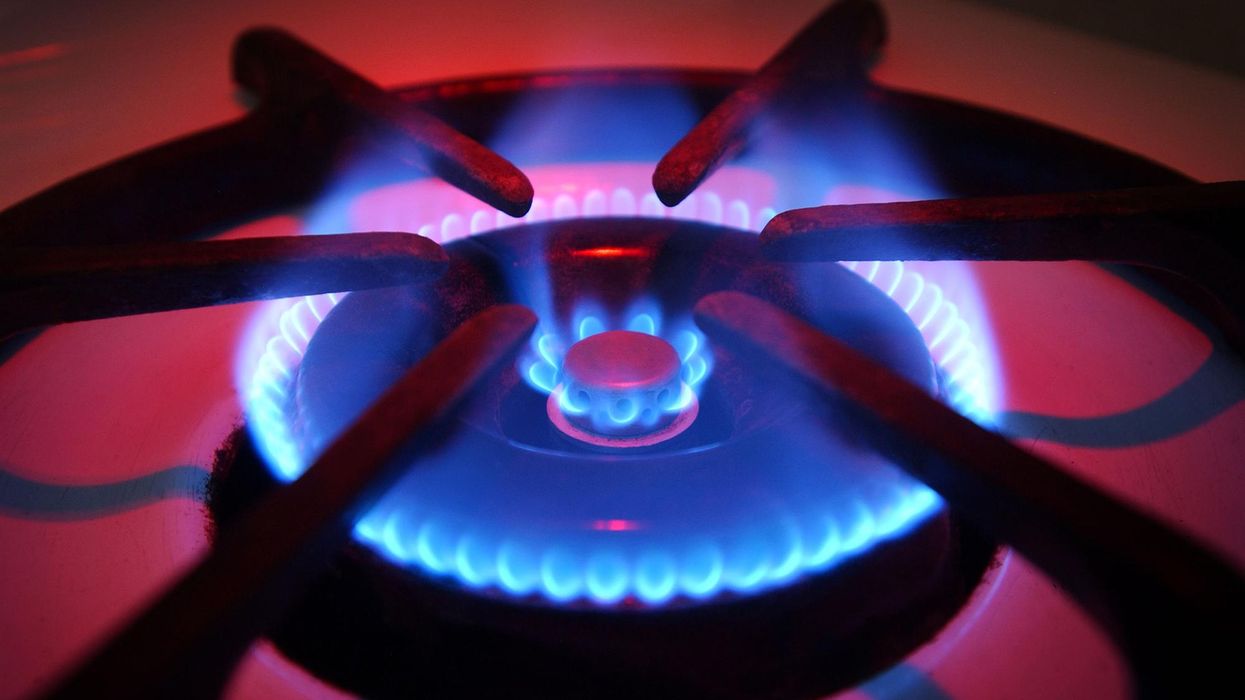(CNN) — A federal agency is considering a ban on gas stoves, a source of indoor pollution linked to childhood asthma.
In an interview with Bloomberg, a US Consumer Product Safety commissioner said gas stove usage is a "hidden hazard."
"Any option is on the table. Products that can't be made safe can be banned," agency commissioner Richard Trumka Jr. told Bloomberg. The report said the agency plans "to take action" to address the indoor pollution caused by stoves.
The CPSC has been considering action on gas stoves for months. Trumka recommended in October that the CPSC seek public comment on the hazards associated with gas stoves. The pollutants have been linked to asthma and worsening respiratory conditions.
A December 2022 study in the International Journal of Environmental Research and Public Health found that indoor gas stove usage is associated with an increased risk of current asthma among children. The study found that almost 13 percent of current childhood asthma in the US is attributable to gas stove use.
Trumka told Bloomberg the agency plans to open public comment on gas stove hazards. Options besides a ban include "setting standards on emissions from the appliances."
Thirty-five percent of households in the United States use a gas stove, and the numberapproaches 70 percent in some states like California and New Jersey. Other studies have found these stoves emit significant levels of nitrogen dioxide, carbon monoxide and fine particulate matter — which without proper ventilation can raise the levels of indoor concentration levels to unsafe levels as deemed by the EPA.
"Short-term exposure to NO2 is linked to worsening asthma in children, and long-term exposure has been determined to likely cause the development of asthma," a group of lawmakers said in a letter to chair Alexander Hoehn-Saric, adding it can also exacerbate cardiovascular illnesses.
The letter — Sen. Corey Booker and Sen. Elizabeth Warren among its signers — argued that Black, Latino, and low-income households are more likely to be affected by these adverse reactions, because they are either more likely to live near a waste incinerator or coal ash site or are in a home with poor ventilation.
In a statement to CNN, the CPSC said the agency has not proposed any regulatory action on gas stoves at this time, and any regulatory action would "involve a lengthy process."
"Agency staff plans to start gathering data and perspectives from the public on potential hazards associated with gas stoves, and proposed solutions to those hazards later this year," the commission said in a statement. "Commission staff also continues to work with voluntary standards organizations to examine gas stove emissions and address potential hazards."
Some cities across the US banned natural gas hookups in all new building construction to reduce greenhouse emissions — Berkeley in 2019, San Francisco in 2020, New York City in 2021. But as of last February, 20 states with GOP-controlled legislatures have passed so-called "preemption laws" that prohibit cities from banning natural gas.
"To me that's what's interesting about this new trend, it seems like states are trying to eliminate the possibility before cities try to catch onto this," Sarah Fox, an associate law professor at Northern Illinois University School of Law, told CNN last year. "The natural gas industry ... has been very aggressive in getting this passed."
In a statement to CNN Business, the Association of Home Appliance Manufacturers said an improvement in ventilation is the solution to preventing indoor air pollution while cooking.
"A ban on gas cooking appliances would remove an affordable and preferred technology used in more than 40% of home across the country," Jill Notini, industry spokesperson, said in a statement. " A ban of gas cooking would fail to address the overall concern of indoor air quality while cooking, because all forms of cooking, regardless of heat source, generate air pollutants, especially at high temperatures."
The American Gas Association pushed back against a natural gas ban in a blog post in December, saying it makes housing more expensive as "electric homes require expensive retrofits."
However, Biden's landmark Inflation Reduction Act includes a rebate of up to $840 for an electric stove or other electric appliances, and up to an $500 to help cover the costs of converting to electric from gas.
— CNN's Ella Nilsen contributed to this report.
The-CNN-Wire
™ & © 2023 Cable News Network, Inc., a Warner Bros. Discovery Company. All rights reserved.
- How Does Climate Change Affect Gun Violence? ›
- How Women of Color Are Bearing the Brunt of Climate Change ›
- Climate Change Disproportionately Impacts Latino Communities ›


















































